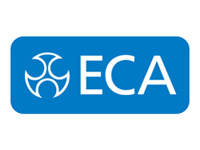JIB responds to Skills to Build report with call to prioritise direct employment and competence.
The Centre for Social Justice report: ‘Skills to Build: Fixing Britain’s construction workforce crisis’, was published in November 2025, setting out 26 recommendations – across government departments, education and industry. The central message, that construction cannot meet housing and infrastructure demand without rebuilding a domestic skills pipeline, has been a long-held concern of the Joint Industry Board (JIB).
Stable employment models support skills and safety
Reliance on insecure labour models is cited as a key driver of the shortage. Of the multiple models referenced, the JIB emphasises that direct employment is the most sustainable and effective foundation for developing skills, raising standards and protecting workers. Any expansion of self-employment as a standard entry route, particularly in safety-critical occupations such as electrical installation, would be detrimental.
The JIB Agreement as a sectoral collective agreement, jointly developed by ECA and Unite the Union, already enables:
• secure terms of employment
• structured training obligations
• fair wages and progression
• portability of employment benefits
• workforce planning for competence growth
Future developments should reinforce, not dilute, mechanisms that promote responsibility, continuity and investment in skills.
Routes to competence
The report raised the problem of ineffective education-to-employment pathways. It is important to acknowledge that competence is not achieved by participation in training alone. In the electrotechnical sector, the recognised benchmark for baseline competency and safe independent working in the Level 3 apprenticeship, Level 3 NVQ or equivalent, combined with a rigorous competence assessment (i.e. AM2), a qualification in the latest edition of the BS7671, and ongoing revalidation or CPD.
Any changes to qualifications and apprenticeships should reflect this standard and avoid introducing shortcuts, lower requirements or parallel routes lacking robust assessment.
Future approaches must prioritise:
• verified achievement of occupational competence
• linking qualifications directly to skills-card access, building on digital skills systems such as MyECS
• renewal based on revalidation and continued professional development where appropriate.
Strengthening verification and checking infrastructure
The report notes the imbalance between the number of learners completing FE courses and those transitioning into skilled work. For JIB and the wider CSCS Alliance, the solution is to look beyond simply getting more people to enter the construction industry. We must establish that those accessing site have the required and verifiable competency.
Digital and smart-checking systems such as CSCS Smart Check, led by JIB on behalf of 37 Alliance schemes, already provide a secure solution with more than 50 million cards checked since launch.
The JIB will support any reform that:
• improves the visibility of verified skills, knowledge, experience and behaviours
• prevents the proliferation of non-competency credentials
• delivers consistency of checking across all sites.
Robust education to work routes
JIB supports the report’s drive to strengthen work experience, technical education and FE provision, provided this:
• leads to competence, not just participation
• allows progression to VQ Level 3 for electrical workers
• prevents schools and colleges from presenting construction as a “fallback” route
• recognises the need for highly technical progression pathways.
Equally, any apprenticeship reform must ensure funding and assessment changes must maintain rigour. The electrotechnical apprenticeship has high achievement rates for a reason: it is structured, demanding and competency-based. JIB therefore cautions against proposals – however well-intentioned – which reduce independent assessment, dilute qualifications or prioritise speed to completion over standards.
A constructive but clear stance
The JIB supports change and recognises that this report proposes valuable steps. However, solving the skills crisis does not mean widening the funnel at the expense of competence, employment security or building safety.
Commenting on the report, Jay Parmar, JIB CEO, said:
“Any national plan to fix the construction workforce crisis must put accountability at its core. The JIB will continue to support changes which champion direct employment, industry-recognised qualifications and systems which verify skills. We will challenge any proposals which risk repeating past mistakes, expand insecure labour models or lower the bar for entry. A competent, skilled and fairly-treated workforce is more than a policy aspiration – it is a safety requirement.”
Next actions
The JIB will engage with government and partners to champion reforms that:
• reinforce direct employment and responsible labour models
• expand routes that lead to competence, including VQ Level 3 for electrical workers
• support secure, structured apprenticeships
• protect verification and smart-checking processes
• maintain high standards of building safety and technical capability across the industry







